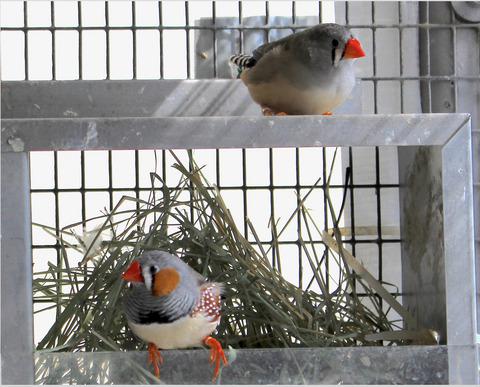当前位置:
X-MOL 学术
›
Ecol. Evol.
›
论文详情
Our official English website, www.x-mol.net, welcomes your
feedback! (Note: you will need to create a separate account there.)
Female differential allocation in response to extrapair offspring and social mate attractiveness
Ecology and Evolution ( IF 2.3 ) Pub Date : 2021-05-25 , DOI: 10.1002/ece3.7560 Kerianne M Wilson 1, 2 , Nancy Tyler Burley 1
Ecology and Evolution ( IF 2.3 ) Pub Date : 2021-05-25 , DOI: 10.1002/ece3.7560 Kerianne M Wilson 1, 2 , Nancy Tyler Burley 1
Affiliation

|
Renewed debate over what benefits females might gain from producing extra-pair offspring emphasizes the possibility that apparent differences in quality between within-pair and extra-pair offspring are confounded by greater maternal investment in extra-pair offspring. Moreover, the attractiveness of a female's social mate can also influence contributions of both partners to a reproductive attempt. Here, we explore the complexities involved in parental investment decisions in response to extra-pair offspring and mate attractiveness with a focus on the female point of view. Adult zebra finches paired and reproduced in a colony setting. A male's early-life diet quality and his extra-pair reproductive success were used as metrics of his mating attractiveness. Females paired with males that achieved extra-pair success laid heavier eggs than other females and spent less time attending their nests than their mates or other females. Extra-pair nestlings were fed more protein-rich hen's egg than within-pair nestlings. Females producing extra-pair offspring had more surviving sons than females producing only within-pair offspring. Collectively, results show that females differentially allocate resources in response to offspring extra-pair status and their social mate's attractiveness. Females may also obtain fitness benefits through the production of extra-pair offspring.
中文翻译:

对外对后代和社会伴侣吸引力的女性差异分配
关于雌性从生产额外配对后代中可能获得什么好处的新争论强调了这样一种可能性,即配对内和配对外后代之间明显的质量差异可能会因母亲对配对外后代的更大投资而混淆。此外,女性社交伴侣的吸引力也会影响双方对生殖尝试的贡献。在这里,我们探讨了父母投资决策中涉及的复杂性,以应对额外配对的后代和配偶吸引力,重点关注女性的观点。成年斑胸草雀在群体环境中配对和繁殖。雄性生命早期的饮食质量和他的配对繁殖成功率被用作衡量其交配吸引力的指标。与获得额外配对成功的雄性配对的雌性比其他雌性产下更重的蛋,并且比它们的伴侣或其他雌性花费更少的时间来观察它们的巢穴。与配对内的雏鸟相比,配对外的雏鸟被喂食了更多富含蛋白质的鸡蛋。产生额外配对后代的雌性比只产生配对内后代的雌性有更多的存活儿子。总的来说,结果表明,雌性会根据后代的配对外地位及其社会伴侣的吸引力来差异性地分配资源。雌性还可以通过生育额外的后代来获得健康益处。
更新日期:2021-06-22
中文翻译:

对外对后代和社会伴侣吸引力的女性差异分配
关于雌性从生产额外配对后代中可能获得什么好处的新争论强调了这样一种可能性,即配对内和配对外后代之间明显的质量差异可能会因母亲对配对外后代的更大投资而混淆。此外,女性社交伴侣的吸引力也会影响双方对生殖尝试的贡献。在这里,我们探讨了父母投资决策中涉及的复杂性,以应对额外配对的后代和配偶吸引力,重点关注女性的观点。成年斑胸草雀在群体环境中配对和繁殖。雄性生命早期的饮食质量和他的配对繁殖成功率被用作衡量其交配吸引力的指标。与获得额外配对成功的雄性配对的雌性比其他雌性产下更重的蛋,并且比它们的伴侣或其他雌性花费更少的时间来观察它们的巢穴。与配对内的雏鸟相比,配对外的雏鸟被喂食了更多富含蛋白质的鸡蛋。产生额外配对后代的雌性比只产生配对内后代的雌性有更多的存活儿子。总的来说,结果表明,雌性会根据后代的配对外地位及其社会伴侣的吸引力来差异性地分配资源。雌性还可以通过生育额外的后代来获得健康益处。











































 京公网安备 11010802027423号
京公网安备 11010802027423号